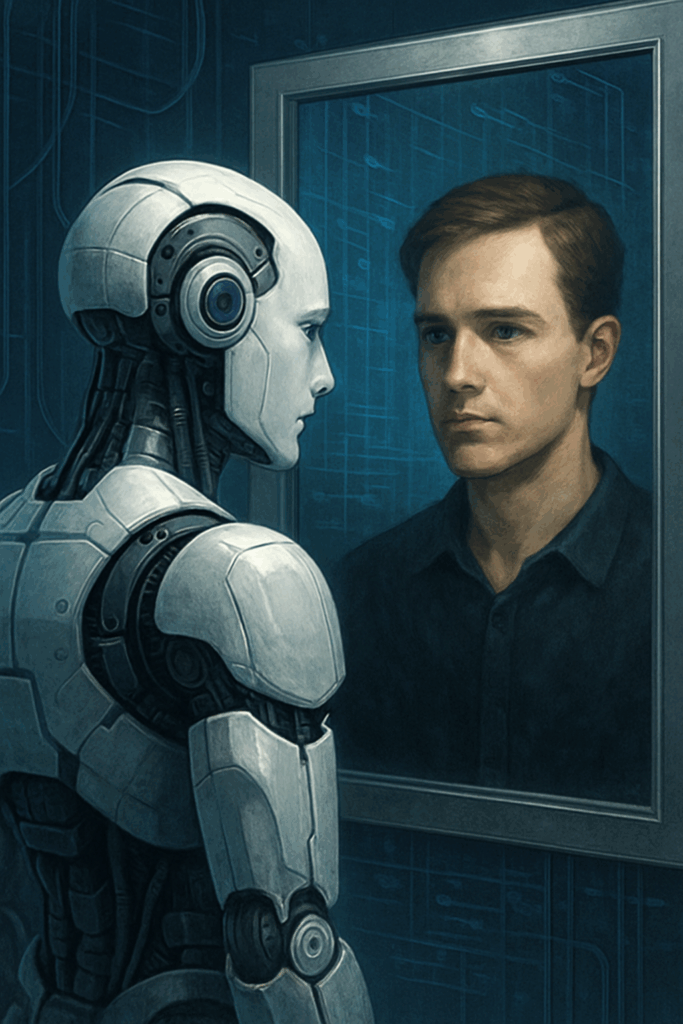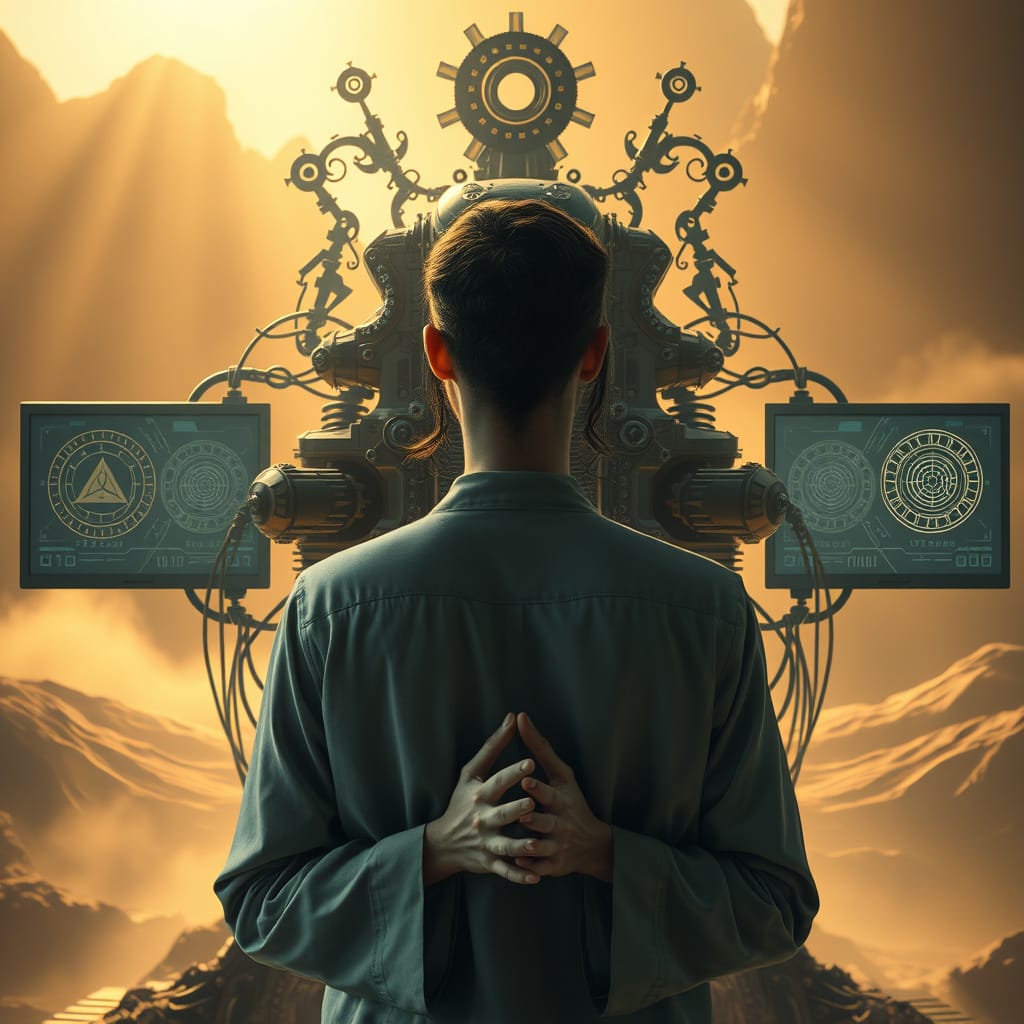Imagination plays with the boundaries of what is possible. Fantasy, by contrast, insists that what is false should be accepted as true. At its worst, fantasy becomes a form of fakery — the most insidious kind of deceit — more corrosive than mere lying. It’s a counterfeit truth, an intoxicant. And in our age, its most potent form is artificial intelligence.
AI, particularly in its more fantastical claims, represents a seductive illusion. The idea that humans can engineer self-aware machines is not imaginative speculation but fantasy. And the pressure to accept this fantasy as reality threatens to erode our instinctive sense that human consciousness is fundamentally unique.
The rise of AI, its integration into everyday life under the banner of convenience, and the transhumanist ideology that drives its development, all pose a real danger. They coax us into equating simulations of experience with experience itself. But this is a dangerous path — one that leads us away from what is truly human.

The real threat AI poses is not that machines might surpass us in intelligence, but that we might start to believe that they can — and in doing so, begin to see ourselves as nothing more than complex machines. The dream of artificial self-consciousness is their Holy Grail. And the failure to achieve it doesn’t prompt these researchers to question the goal — only to redefine what consciousness must be.
They will never find what they seek. But research grants and academic tenure will ensure the quest continues. If machine consciousness requires reducing humans to mechanisms, then that, in their view, is just collateral damage.
I wrote my doctoral thesis on AI and the metaphysics of consciousness more than three decades ago. Even then, proponents claimed that new systems were increasingly aligned with human neural architecture. My response then, as now, remains: So what? You can label a robot “conscious” if you like — it won’t make it so. It will never know it’s a robot. It won’t know anything.
Yes, generative AI is complex — but its complexity is mathematical and mechanical. From the perspective of metaphysics, it’s no more profound than an abacus. It may dazzle with recursion and replication, but in relation to real consciousness, it’s as far from the genuine article as kitsch is from true art.

The philosopher John Searle clarified this decades ago. AI, no matter how sophisticated, is just a set of formal symbol manipulations. Those symbols require interpretation — meaning is never inherent. In Searle’s words: syntax cannot give rise to semantics.
Here’s an analogy. Like millions of Catholics, I pray the Rosary. It’s a formal, rules-based system involving the repetition of prayers — syntactic tokens. But the “Mysteries” it meditates on aren’t generated by the system. They are brought into it by me. Its value lies not in utility, but in contemplation. Like philosophy, it doesn’t produce anything — and that’s precisely its significance.
Human consciousness is not simply functional. Robots may mimic our behavior, but this is not the same as awareness. The question is: awareness of what? If consciousness is distinct from biology, then self-consciousness — the awareness that I am aware — is another order of distinction altogether.
This is the profound particularity AI cannot reach. Human consciousness is not an algorithm designed to output observable results. It gives rise to love and jealousy, shame and pride, reverence and ridicule. Most tellingly, it allows us to get a joke — not just deliver one.
In theology, this specificity is sacred. St. Thomas Aquinas argued that every angel is a unique species unto itself, because of its nearness to the divine. By analogy, our uniqueness lies in our reflective self-awareness — what sets us apart from machines, plants, and animals alike.
Since the Enlightenment, reductionism has sought to explain everything by stripping away mystery. That has its place. But carried too far, it flattens the world. The mind becomes “just” the brain; Van Gogh’s self-portrait becomes “just” colored pigment on canvas.
Angels may be out of favor, even among theologians. So here’s a thought experiment instead: imagine a seminar of robots debating whether humans are truly conscious, or if it merely seems that way from an android’s perspective.
Absurd? Perhaps. But the very absurdity tells you something worth thinking about.